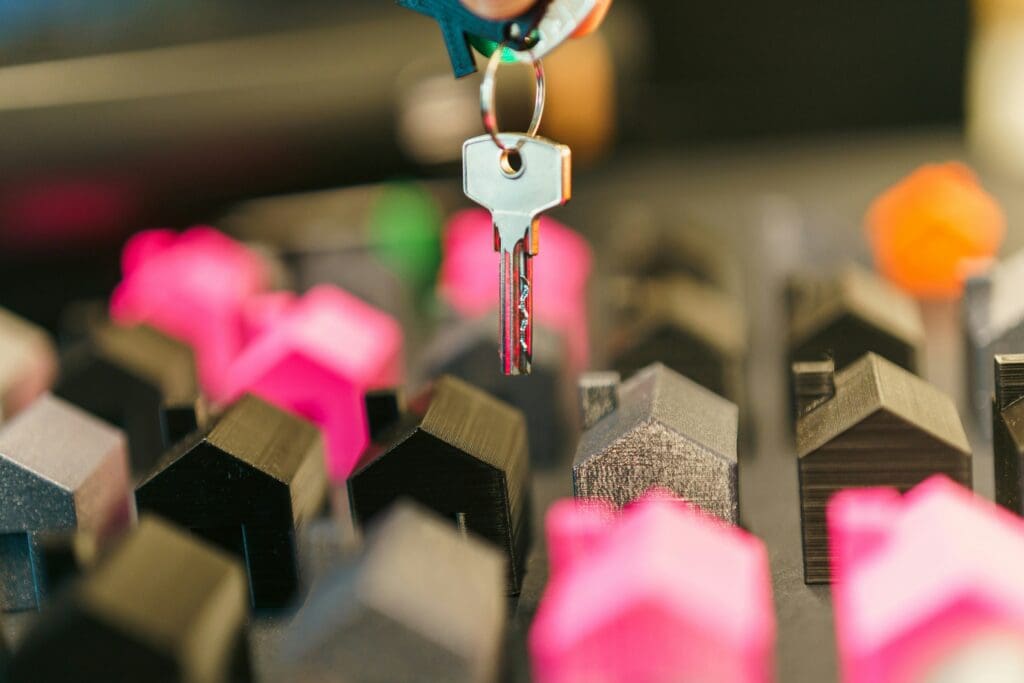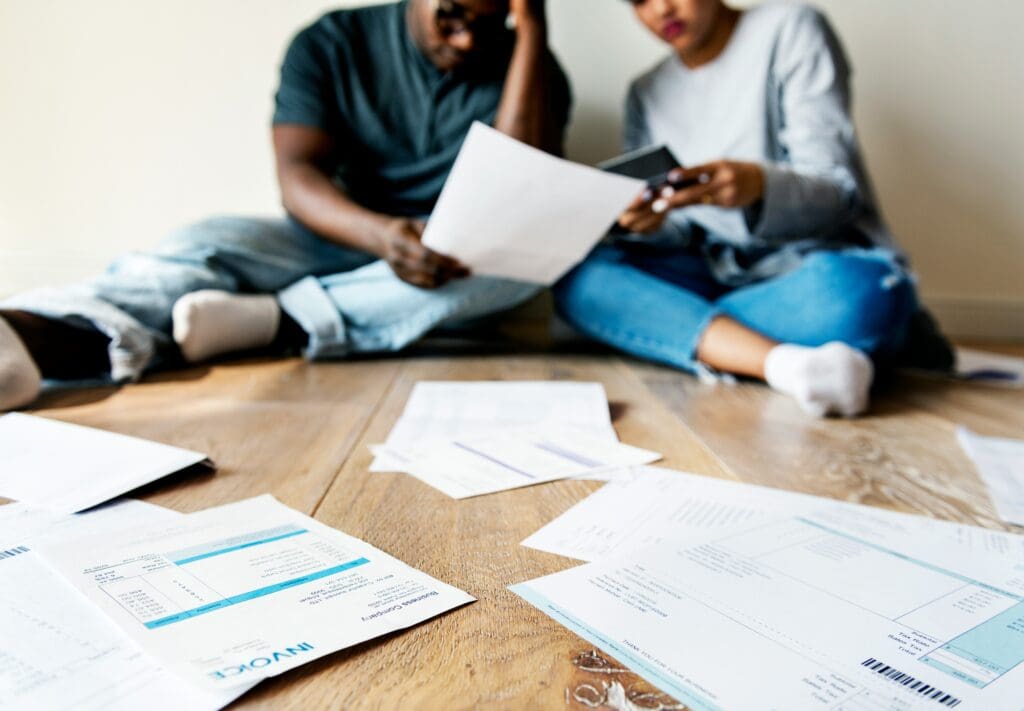Should I Sell My House at Auction?

Estimated reading time 8 minutes
When we finally decide to sell the house, we are often met with a host of competing estate agents vying for our custom. Each promising low fees, fast sales, minimal risk and a ready and willing pool of buyers desperate for your home. The truth is somewhat different. The average time to sell a house fluctuates between 3 and 6 months, and the risk is always high, especially with a chain break looming overhead. That is why many consider selling at an auction. Is it worth it though? Well, much depends on your goals.
- You don’t sell your house for free, so there will be costs.
- There is no guaranteed sale, so you may have to attend multiple auctions before you get a sale.
- The sale isn’t as fast as you may hope. Once the auction is over, completion may be up to 56 days away.
These three factors alone may be enough to put sellers off selling a house at auction. In this blog, we dig a little deeper.
How do you sell your house at auction?
How you sell your house at auction depends on which method of auction you’ve chosen to pursue. You can choose the traditional method, which offers a 28-day completion, or the modern method, which operates a little differently and has 56-day terms.
Traditional property auction
With the traditional auction method, buyers can make bids both in person and online. It varies a little from the modern method of auction, which we’ll explain further down the page. To sell via a traditional property auction, you’ll need to follow these steps:
- Find an auction house. Now would also be a good time to find out about fees, too.
- Set your guide and reserve prices. A guide price is what the auctioneer will advertise the property for. A reserve is the minimum you are willing to accept. (The reserve price is only known by you and the auction house.)
- Auctioneer produces marketing materials. Ensure you provide them with the EPC and all other property details.
- Legal pack is produced. All information relating to the property’s legal status is created for potential buyers. This is normally made available approximately three weeks before the auction.
- Auctioneer gets you to sign a sale agreement. This contract confirms your willingness to sell at auction and that you’ll abide by the terms of the auction house. Always check these before signing. There may be additional fees to pay or obligations for you to fulfil.
- The property is listed for sale by the auction house. This is normally done about 3-5 weeks before the auction, but it can be sooner.
- Viewings and open days. People may wish to view the property before making a bid. The auctioneer takes the role of estate agent and will manage this. Just make sure your property looks its best and you are available to answer any questions.
- Auction takes place. The auction will take place either in person or online.
- The property sells. If your reserve is met or exceeded, the property is sold to the highest bidder. The sale is legally binding, and contracts are exchanged.
- Buyer pays 10% deposit immediately, with the remaining balance paid within 28 days.
- Completion. With the remaining legal work completed, the sale will be concluded on the date stipulated at auction.
Modern method of auction
The modern method of auction is similar to the traditional method with just a few key changes. These auctions, also known as conditional auctions, can be a slower process than the traditional auction method. It follows the same process, up until the hammer falls. That’s when things can become a little nervous for a seller.
- A winning bidder pays a reservation fee. Upon the hammer falling, the winner pays a non-refundable reservation fee. This is normally between 2.5% and 5% of the property value.
- Reservation agreement is signed. This agreement gives the buyer exclusivity to exchange contracts.
- Not legally binding at this point. Even though a reservation fee is paid, the sale is still not legally binding, meaning the buyer can pull out.
- Buyer then has 28 days to exchange contracts and a further 28 days to complete the purchase.
What properties can be sold at auction?
Practically all properties can be sold at auction, making it an option many sellers choose. However, some auction houses may distance themselves from certain properties. Houses previously deemed unsellable or only seen as investment properties are slowly being rejected by some auctioneers. This can make it a little more difficult for some people to sell their house without using an estate agent. Luckily, cash house buyers still provide a suitable alternative that keeps ALL sellers away from the costly estate agent fees.
Questions auctioneers will ask property sellers
If selling a house at auction is a route you wish to follow, you’ll need to prepare for a variety of questions from the auctioneer. Certain answers could see them advise a guide or reserve price much lower than you feel happy with. They’ll commonly ask about:
- How urgent your need to sell is. If you want a rapid sale, a traditional auction could sell your house in 28 days, but the sale is NOT guaranteed.
- What condition the property is in. They will want to know if you are selling an unsellable house, or one that needs a few little fixes.
- What the ownership status is. The auction house will want to know if you own the property outright, if it’s in trust or whether there are multiple owners.
- Whether there are any debts against the property. This will include any outstanding mortgage balance or any bankruptcy orders that may be in place.
- If you are listing the property elsewhere. In most cases, auction houses want exclusivity.
What information do I need to give an auctioneer if I’m selling a house at auction?
Your auctioneer will want access to a host of documents and a range of information before you can start selling your house at auction. This includes:
- Proof of ownership. You’ll need to show the title deed, land registry documents and anything else that proves you own the home.
- General property information. The age of the home, its address, its size and any special features or significant issues will all be required.
- Energy Performance Certificate (EPC). You’ll need your valid EPC to indicate the energy efficiency of the home.
- Any legal documents. If planning permission has been sought, you’ve renewed a lease, or you’ve altered the property in any way, you’ll need to show evidence.
- Your ID. Provide both proof of identity and address with a passport or driving licence and a bill or bank statement.
How much does it cost to sell a house at auction?
It can be expensive. You can’t sell your house for free at an auction, as you can with cash house buying companies. There are a host of fees that could apply, and in many cases, these take thousands of pounds off the amount you receive.
Auction fees
Just like estate agent fees, auction fees, or commission, are based on the sale price of the property. They normally range from around 2% to 4%. On top of this, the auctioneer may also charge an entry fee for you to sell your property at auction.
Marketing fees
These are not always applied and are sometimes factored into the auctioneer's fees. However, in some cases, they are an additional cost and can easily reach a few hundred pounds at least.
Legal fees
You’ll have a responsibility to pay for the conveyancing and all aspects of the legal work. This could add a further £1,500 to your expenses.
Costs can vary, and you may find that some auction houses are significantly more expensive. An important thing to remember is that even though a buyer is obliged to buy once the sale becomes legally binding, there is no guarantee the property will sell. This means that you may have to return to the auction house, pay their fees again, and start over.
As you’ve seen, selling a house at auction can be difficult. Not only is the sale not guaranteed, but it can cost a lot of money too. Especially if you don’t successfully sell on the first attempt. In addition, some auction houses may reject certain properties if they don’t fit the type of property they are looking to sell. Furthermore, with scheduled open days organised by the auctioneer, you have the added hassle of mass viewings disrupting your free time. An alternative that cuts out the cost, guarantees the sale and ensures that any type of house sells is Bettermove. We offer a speedy route to sale, plus we don’t charge you a penny for it. Contact our team today to find out more.



